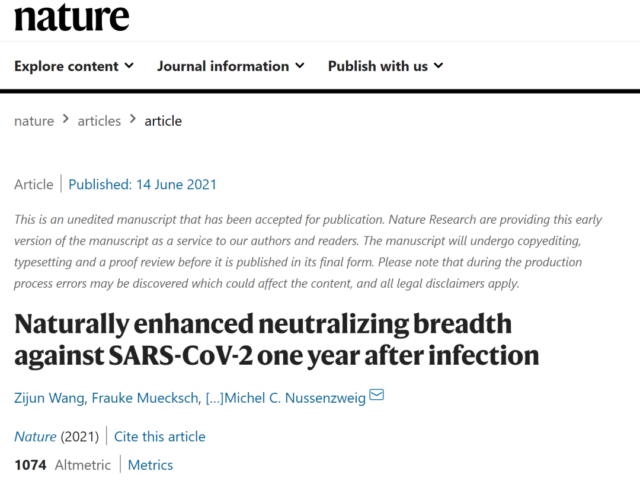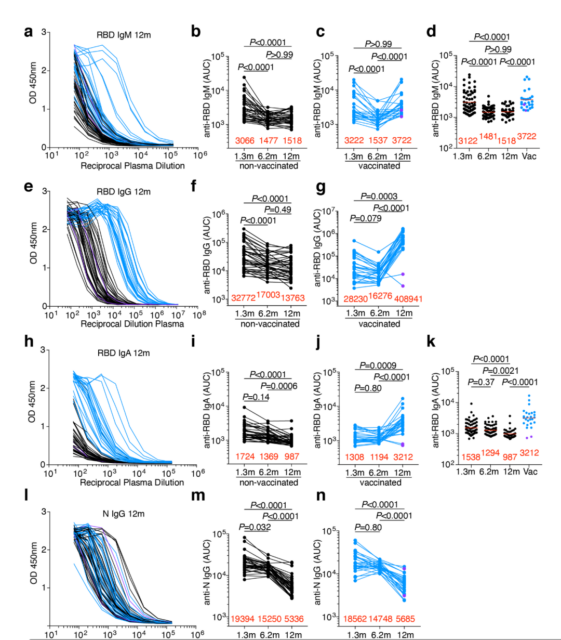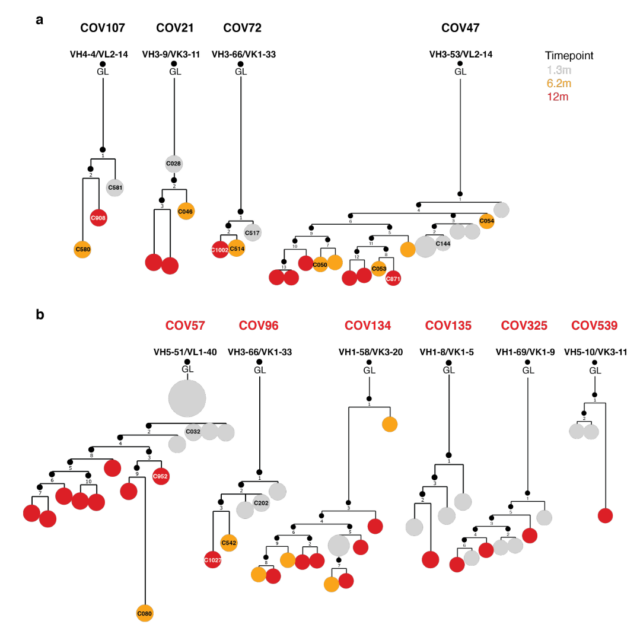The human body’s immunity to COVID-19 may last for several years
- Normal Liver Cells Found to Promote Cancer Metastasis to the Liver
- Nearly 80% Complete Remission: Breakthrough in ADC Anti-Tumor Treatment
- Vaccination Against Common Diseases May Prevent Dementia!
- New Alzheimer’s Disease (AD) Diagnosis and Staging Criteria
- Breakthrough in Alzheimer’s Disease: New Nasal Spray Halts Cognitive Decline by Targeting Toxic Protein
- Can the Tap Water at the Paris Olympics be Drunk Directly?
The human body’s immunity to COVID-19 may last for several years
- Should China be held legally responsible for the US’s $18 trillion COVID losses?
- CT Radiation Exposure Linked to Blood Cancer in Children and Adolescents
- Can people with high blood pressure eat peanuts?
- What is the difference between dopamine and dobutamine?
- What is the difference between Atorvastatin and Rosuvastatin?
- How long can the patient live after heart stent surgery?
The human body’s immunity to COVID-19 may last for several years If the immune system can be maintained, why do repeated infections occur?
Whether the human body’s immunity will be maintained or subside after infection with COVID-19, and how long it will last, has been undecided in the scientific community.
On June 14, local time, Nature magazine published an article in the form of an “accelerated article preview”, again trying to provide answers to this question. “Accelerated Preview” articles will be published online within a few days after receipt, without editing and peer review.
Researchers tracked 63 patients with COVID-19 infection and found that after 12 months of diagnosis, the patient’s immunity against the COVID-19 virus remained stable. All indicators of immunity of vaccinators have been further improved.
The research is consistent with the conclusion of a growing body of literature that the immunity caused by natural infection with the new coronavirus or vaccination seems to exist for a long time.

The types of antibodies are more diverse, Can deal with 5 kinds of mutations
The above-mentioned research comes from the Laboratory of Molecular Immunology of Rockefeller University in New York and other American institutions of higher learning.
The researchers reported the continuous observation results of 63 patients with COVID-19 infection at 1.3 months, 6.2 months and 12 months after diagnosis, of which 26 (41%) received at least one dose of mRNA vaccine.
The results showed that even patients with natural infections maintained their antibody titers during the 12-month follow-up period. Compared with the data at 6.2 months, the patient’s IgM antibody titer level at 12 months hardly changed (103%). Although the levels of IgG and IgA have decreased, they also maintained 82% and 72% activity, respectively.
In other words, the immunity of the infected person to the new coronavirus can be maintained for at least one year.

People infected with COVID-19 still maintain antibody activity after 12 months. Vaccines (blue), the antibody activity will be higher
The researchers also found that the neutralization titer data (NT50) of the vaccine recipients at 12 months was 3684, which was nearly 50 times higher than that of the unvaccinated people, and the IgG titer increased by nearly 30 times. This means that the vaccine can greatly increase the level of neutralization titer.
In addition to neutralizing antibodies, the human body’s long-term immunity against the new coronavirus is also related to specific memory B cells.
The results of the study showed that the level of specific memory B cells in unvaccinated persons decreased, while the relevant indicators of vaccinated persons increased by an average of 8.6 times.
In addition, antibodies against mutations in the receptor binding domain (RBD) of the new coronavirus in the human body are also evolving. Among the new coronavirus mutant strains that have been detected and isolated, multiple mutations in the receptor binding domain of the spike protein are the main type of mutation and the most worrying mutation.
The researchers found that in the six common mutations in RBD, the ability of antibodies to respond to five of them has increased. This indicates that the antibody reservoir has evolved a broader neutralization capacity.

Antibodies against the COVID-19 receptor binding domain continue to evolve
If immunity can be maintained, Why do repeated infections still occur?
Since the beginning of the COVID-19 epidemic, there have been endless studies on whether human immunity can be maintained.
In December 2020, researchers from Australia found that after being infected with the new coronavirus, protective neutralizing antibodies can stay in the human body for at least 8 months.
The research was published in the journal “Science Immunology”.
The researchers pointed out that many previous studies have shown that the first wave of antibodies against the new coronavirus will weaken after a few months.
People are worried that they may lose immunity soon because of this, but this new study dispels these concerns.
They found that there is a specific memory B cell in the immune system that “remembers” the virus infection.
If it is exposed to the virus again, it will trigger a protective immune response by rapidly producing protective antibodies.
On May 26, the New York Times also reported two studies published in the journal Nature and the biological research website BioRxiv.
The results also indicate that the body’s immunity against the new coronavirus may last for several years.
However, as to whether human immunity can be maintained after being infected with the COVID-19, some studies have reached the opposite conclusion.
According to a report from Reuters in October 2020, a study from the United Kingdom covering 365,000 people showed that the human body’s immunity against the COVID-19 is “fading”.
Researchers from the Imperial College of Technology distributed finger blood test kits to the subjects. After passing the test, it was found that the proportion of the population with COVID-19 antibodies in the UK dropped from 6% in June 2020 to 4.4% in September.
Wendy Barclay, director of the Infectious Diseases Center at Imperial College London, said: “According to our understanding of other coronaviruses, the comparison of evidence shows that immunity and antibody levels will decrease simultaneously, which shows that the British population’s immunity to theCOVID-19 is fading.”
Regarding the scientific community’s inconsistent conclusions, Jin Dongyan, a well-known virology expert and professor of biomedicine at the University of Hong Kong School of Medicine, told the “medical community” that differences in patients, reagent sensitivity, and detection methods selected by researchers will affect the final conclusion.
“There are many indicators for evaluating protective immunity. In addition to neutralizing antibody titers, it also includes data such as T cells and immune memory. In the final analysis, it depends on whether the vaccinators can be protected from infection. If only neutralizing antibodies are concerned, it will be It is relatively superficial, because neutralizing antibodies are not the same as all protective immunity.” Jin Dongyan said.
Regarding the research mentioned at the beginning of the article, many netizens wondered, if immunity can be maintained, why would someone get re-infection?
Wang Yuedan, secretary general of the Chinese Society of Eugenics Science, Women and Children Immunology Branch, also expressed similar views to the “medical community”: “Similar work, we have done during SARS, can indeed be tested in patients who have recovered from coronavirus infection.
To the immune response product, whether it can withstand re-infection, especially mucosal infection, needs to be confirmed by human challenge test or infection test.”
In this regard, Jin Dongyan believes that more and more data show that natural infection can provide a certain degree of protection for the infected person for a certain period of time, at least to prevent most of the repeated infection.
From a global perspective, the number of people who are re-infected with the COVID-19 is very small, concentrated in mild and asymptomatic patients. Re-infection is mainly related to differences in virus types and numbers, so there is no need to worry too much.
(source:internet, reference only)
Disclaimer of medicaltrend.org
Important Note: The information provided is for informational purposes only and should not be considered as medical advice.



